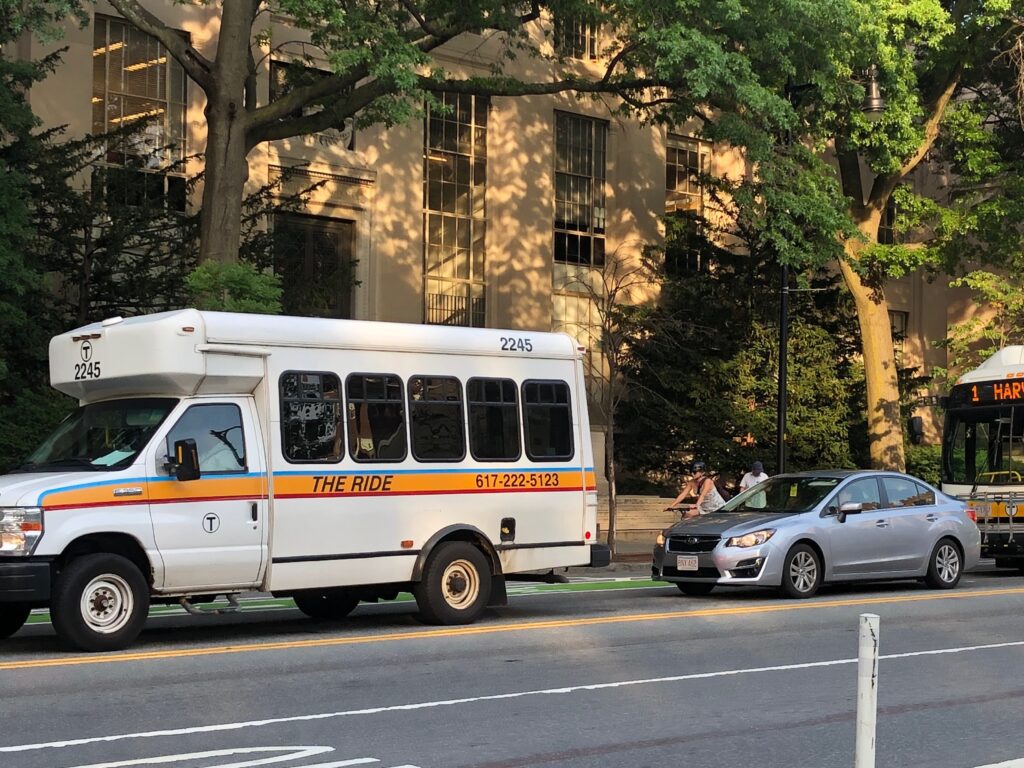Paratransit services in the United States have long provided a vital form of transportation for people with disabilities who are unable to use traditional public transit. However, coverage and high costs have remained key challenges for transportation agencies, and service levels are often limiting for riders. Innovations in the transportation sector, such as e-hailing services, which provide rides requested on-demand, may hold potential to address some of these issues. Over the past several years, transit agencies have been conducting pilot programs to test the feasibility and efficiency of paratransit services provided by ridehailing services. This field research focuses on two of these programs, run by Boston’s MBTA, which has extended their paratransit pilot program using Uber and Lyft since 2015, and New York City’s MTA, which began a limited taxi e-hailing program in 2018. Through interviews with riders, advocacy groups, and government representatives, this research aims to provide a better understanding of the benefits and challenges of ridehailing paratransit programs, and the lessons that the experience holds for increasing transportation access for people with disabilities.
A study of ridehailing programs for passengers with disabilities in Boston and NYC
Researcher(s):
Madeleine Parker
PhD Student
City and Regional Planning
Tags: Summer Research Funding

